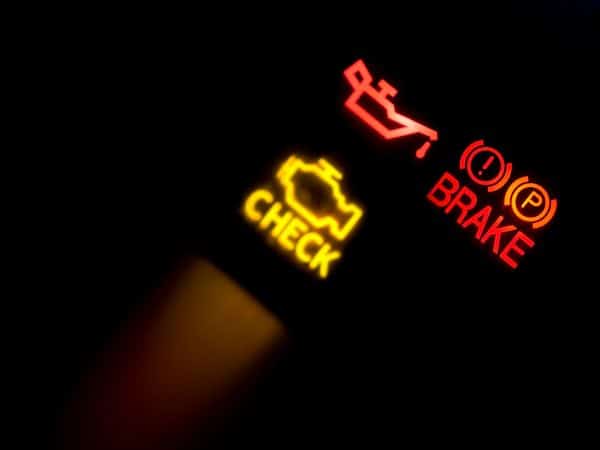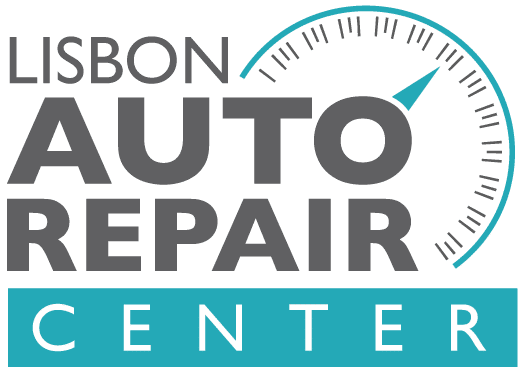11 of the Most Common Car Repairs in Maryland
Is your vehicle giving you trouble? While some car repairs need a specialist, most car repairs in Maryland are simple, easy, and standard for your local auto shop.
Maryland’s unique climate and road conditions can influence the frequency and type of certain repairs. Most car repairs can be boiled down to a few tried-and-true problems that have quick, affordable solutions.
Find out what common car repairs may be affecting your vehicle and call Lisbon Auto Repair Center to get the problem fixed quick and easy today.

Common Car Repairs and How to Spot Them
1. Oil Changes
Regular oil changes keep your engine running smoothly. As your engine runs, it collects debris and the oil can become clumpy and ineffective. Every 3,000 to 10,000 miles (depending on vehicle make, model, and year) you need to have an oil change to ensure your engine is running properly. If your engine is causing you problems and you’ve skipped your latest oil, this could be the simple fix.
Signs You Need an Oil Change:
- Burning oil smell.
- Check engine light.
- Change oil dashboard light.
- Engine knocking.
- Drop in fuel efficiency.
2. Brake Repairs
With heavy traffic, especially in urban areas like Baltimore and near D.C., brakes might wear out faster due to frequent stopping. Brake repairs include replacing brake pads, rotors, or repairing brake lines to ensure safety. Without properly functioning brakes, your vehicle is at risk for collisions, accidents, and other dangerous driving conditions.
If your car is making odd noises, not stopping consistently, or the pedals feel weird, it could be as simple as brake repairs. Signs include squealing or grinding noises, a spongy brake pedal, or vibrations when braking.
Signs You Need Brake Repairs:
- Spongy brake pedal.
- Vehicle pulling to the side.
- Squeaking.
- Pedal vibrations.
3. Battery Replacement
Maryland experiences both hot summers and cold winters, both of which can shorten battery life and can cause batteries to need to be replaced more frequently. Most car batteries last 3–5 years, but extreme weather conditions can shorten their lifespan. Always test your battery if you find you are having problems with your car.
Signs You Need a New Car Battery:
- The car struggles to start or doesn’t start at all.
- Dim headlights or electrical issues.
- A rotten egg smell coming from the battery.
- Battery warning light on the dashboard.

4. Tire Replacements
Fluctuating temperatures between seasons in Maryland can also lead to tire pressure changes and uneven wear. For Maryland drivers, cars and trucks may need more frequent tire services like inspections, repairs, or replacements.
Check your tire pressure monthly or before long trips to ensure road safety and fuel efficiency. Fixing flat tires, balancing tires, or replacing worn-out ones are common services to fix tire wear issues.
Signs You Need a Tire Replacement:
- Uneven tread wear or bald spots on the tires.
- Frequent loss of air pressure.
- Vibrations or a thumping noise while driving.
- Visible damage, such as cracks, bulges, or punctures.
- Difficulty maintaining control of the vehicle, especially in wet conditions.
5. Wheel Alignment and Balancing
Wheel alignments and wheel balance help your car or truck run smoothly. When your wheels are out of alignment, this can cause your car to veer to one side, cause noises, and reduce fuel efficiency.
Wheels can go out of alignment due to hitting a curb, having uneven wear and tear, or being in a minor collision. The good news is that a wheel alignment is a fast fix for local auto repair shops.
Signs You Need a Wheel Alignment:
- The car pulls to one side while driving straight.
- Uneven or rapid tire wear.
- Vibrations in the steering wheel at higher speeds.
- The steering wheel is off-center when driving straight.
6. Engine Tune-Ups
Routine engine maintenance includes replacing spark plugs, cleaning and replacing filters, and inspecting engine components. Engine tune-ups are a critical part of car repairs because they fix the small components that can lead to bigger engine problems and breakdowns down the line. Not sure when you last had an engine tune-up? It could be time to schedule.
Signs You Need an Engine Tune-Up:
- The engine misfires, stalls, or runs roughly.
- Decreased fuel efficiency.
- Difficulty starting the car.
- A lack of acceleration or power.
- The check engine light is on.

7. Suspension Repairs
Roads in Maryland are constantly under construction and have potholes, divots, and uneven asphalt distribution. This can increase the need for suspension repairs like replacing shocks, struts, or control arms. Maryland drivers, especially those in urban areas like DC and Baltimore, should have their suspension checked at least once a year.
Signs You Need Suspension Repairs:
- The car bounces excessively after hitting a bump.
- Uneven tire wear.
- Difficulty steering or a pulling sensation.
- Strange noises, such as clunking, when going over bumps.
- The car sits unevenly when parked on level ground.
8. Frame Rust Repairs
Maryland’s winters often involve snow and salted roads, which can lead to vehicle frame rust or corrosion on the undercarriage, brake lines, and exhaust systems. Salt exposure during the winter months can also require rust prevention treatments or repair of rusted areas. If you’re a Maryland driver, visit an auto shop that offers frame rust repairs to protect your undercarriage after the winter months.
Signs You Need Rust Repairs:
- Visible rust, flaking, bubbling, or deep corrosion on the frame.
- Weak or soft areas where the metal crumbles when pressed.
- Alignment issues, such as the car pulling to one side.
- Strange creaking or groaning noises while driving.
9. Air Conditioning Repairs
Hot, humid summers in Maryland can lead to more frequent use of air conditioning, increasing the chances of compressor or refrigerant issues. The humidity alone can cause an increase in usage compared to drivers in other regions.
When your A/C isn’t working, it doesn’t just affect your comfort, but the ability to properly cool the engine as well. Overheating can lead to serious engine problems and breakdowns. Luckily, A/C repairs are a fast fix for auto shops and is a common car repair.
Signs You Need Car AC Repairs:
- Weak or no airflow from the vents.
- The air isn’t cooling properly or blows warm air.
- Strange noises when the AC is on.
- A musty or foul odor when using the AC.
- Visible refrigerant leaks under the car.
10. Windshield Repairs
Winter weather in Maryland and the use of gravel or salt on roads can increase the risk of cracked windshields from flying debris. This combined with high construction zones leads to cracked windshields for many drivers. This is not only unsafe but can cause hinder vision as well. Always see your local auto repair shop for common repairs like windshield replacements to stay safe on the road.
When Do You Need to Replace Your Windshield:
- Cracks longer than six inches or chips in the driver’s line of sight.
- Spiderweb cracks with multiple intersecting lines.
- Cracks or chips near the edges of the windshield.
- Distorted view or visual obstruction caused by damage.
- A previous windshield repair that has failed or worsened.
11. Heating System Repairs
Cold winters in Maryland mean frequent use of heating systems, which may lead to wear on the blower motor or heater core of your vehicle. Common car repairs in Maryland include servicing the heater system for both comfort and longevity of your engine.
Signs You Need Car Heater Repairs:
- No heat or weak heat output, even when the car is fully warmed up.
- Persistent fogging on the inside of the windows.
- Coolant leaks under the car or a sweet smell inside the cabin.
- Engine overheating.
- Strange noises like rattling or squealing when the heater is turned on.

Schedule Auto Repairs in Maryland at Lisbon Auto
While common car repairs don’t change drastically from region to region, Maryland drivers may find themselves focusing more on seasonal maintenance, rust prevention, and repairs caused by regional weather and traffic conditions. If you live or work in Maryland, it is important to know what situations you will be driving in.
Regular inspections and proactive maintenance tailored to Maryland’s climate can help minimize issues with your vehicle and help you stay on top of common car repairs in Maryland. Talk to the team at Lisbon Auto Repair Center to get your vehicle working properly and back on the road running smoothly.
Frequently Asked Questions About Auto Repairs
How often should I get my car tuned up?
It’s generally recommended to service your car every 5,000–7,500 miles or follow the manufacturer’s schedule in your owner’s manual. Always bring your car in sooner if you notice it is not running properly.
What should I do if my check engine light comes on?
Get your vehicle inspected ASAP if the check engine light comes on. The light could indicate minor issues, like a loose gas cap, or major problems with your engine or emissions system. Troubleshooting a check engine light can help prepare for common car repairs before they become major issues.
How much do common car repairs cost?
Car repair costs vary widely depending on the repair, the vehicle model, and location. An oil change may cost $40–$100, while replacing a transmission can cost $2,000 or more. Your local auto shop will give you an estimate before completing any work to help reduce costs and stay in budget.
How long does it take to repair a car?
Small repairs like oil changes may take less than an hour, while major repairs like engine rebuilds can take several days. Your car repair shop can give an estimate and timeline for common car repairs.
Are common car repairs covered by my car warranty?
If your car is still under warranty, many repairs may be covered, but it’s important to check the terms of your warranty. Always consult your car’s dealership for specific warranty questions and ask local auto repair shops what their budget and coverage is when you need repairs.
What can I do to prevent common car repairs?
Regular maintenance, such as oil changes, tire rotations, and inspections, can help catch issues early and reduce costs of more expensive car repairs.
How do I find a trustworthy repair shop for car repairs?
Look for certified mechanics (e.g., ASE certification), read reviews, and ask for recommendations from friends or family.
Do I have to take my car to the dealership for repairs?
No, you can use any certified repair shop. Dealerships are only required for warranty work in some cases. In some cases, your local auto shop can provide more personal service on a faster timeline.
Can I use aftermarket parts instead of original manufacturer parts?
Yes, but discuss with your mechanic. Aftermarket parts are often cheaper, but quality can vary compared to OEM (original equipment manufacturer) parts. Find an auto shop you trust to make recommendations for car repairs.

